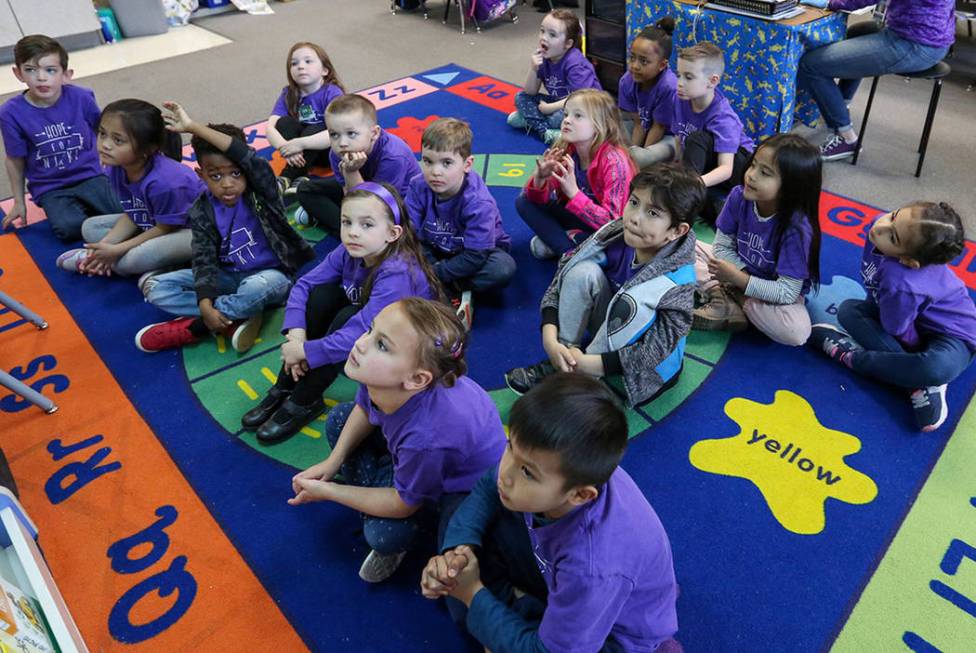VICTOR JOECKS: Nation’s Report Card shows more money didn’t improve Nevada education

Let’s start with something you don’t hear very often: There’s good news about student achievement in Nevada. There’s bad news, too, but let’s start with the positive.
Fourth graders in Nevada had the second-highest reading score gains in the nation over the past two years. That comes from the National Assessment of Education Progress, which measures student achievement in every state. Also called the Nation’s Report Card, it’s the best way to see how student outcomes have changed over time and make comparisons between states. Since it’s run by the federal government, states can’t tinker with it to artificially improve their results. The Nation’s Report Card uses a 500-point scale.
It wasn’t a great year nationally for fourth-grade reading, as the country’s average declined. Just three states, Mississippi, South Carolina and Nevada, had increases of more than 1 point. Mississippi had a significant increase of 4 points. South Carolina and Nevada each had an increase of 3 points, which isn’t deemed significant. But this increase wasn’t a one-time occurrence in Nevada.
In 1998, Nevada’s fourth-grade reading score was 206. For context, a score of 208 denotes a student performing at a basic level. A score of 238 means a student is proficient. In 2019, Nevada’s fourth-grade reading had increased to 218. That’s 1 point below the national average and 32nd highest in the country. That’s not great, but it is an improvement worth celebrating.
Most of the other results are bad. Nevada’s eighth-grade reading score in 1998 was 258. In 2019, it’s 258. That’s down from a peak of 262 in 2013, which tracks with the national trend. A score of 243 means an eighth-grader has a “basic” understanding of reading. Scores of at least 281 denote proficiency. Nevada tied for ninth-lowest in the nation.
Nevada’s math results are disappointing. On the bright side, both fourth and eighth graders scored significantly better than in 2000. But fourth- and eighth-grade math scores have declined since peaks in 2011 and 2013 respectively. Nevada ranks in the bottom 10 in both categories.
These results complicate the assertion that more money will increase student achievement. In 2015, Nevada passed the largest tax hike in state history, specifically to fund education programs. Since then, eighth-grade achievement has fallen. Fourth-grade math achievement is down from its 2011 high point. Nevada’s graduation rate is up, but that’s more attributable to politicians eliminating the proficiency examination than achievement gains.
The best you could say is that the new money increased fourth-grade reading scores. But fourth-grade reading scores also went up between 2009 to 2015. During that time, school budgets mostly stayed stagnate due to the economic downturn. Plus, if money were the key factor, it would have boosted achievement across-the-board.
More money doesn’t increase student achievement. Nevada has the test scores to prove it.
Victor Joecks’ column appears in the Opinion section each Sunday, Wednesday and Friday. Listen to him discuss his columns each Monday at 10 a.m. with Kevin Wall on 790 Talk Now. Contact him at vjoecks@reviewjournal.com or 702-383-4698. Follow @victorjoecks on Twitter.